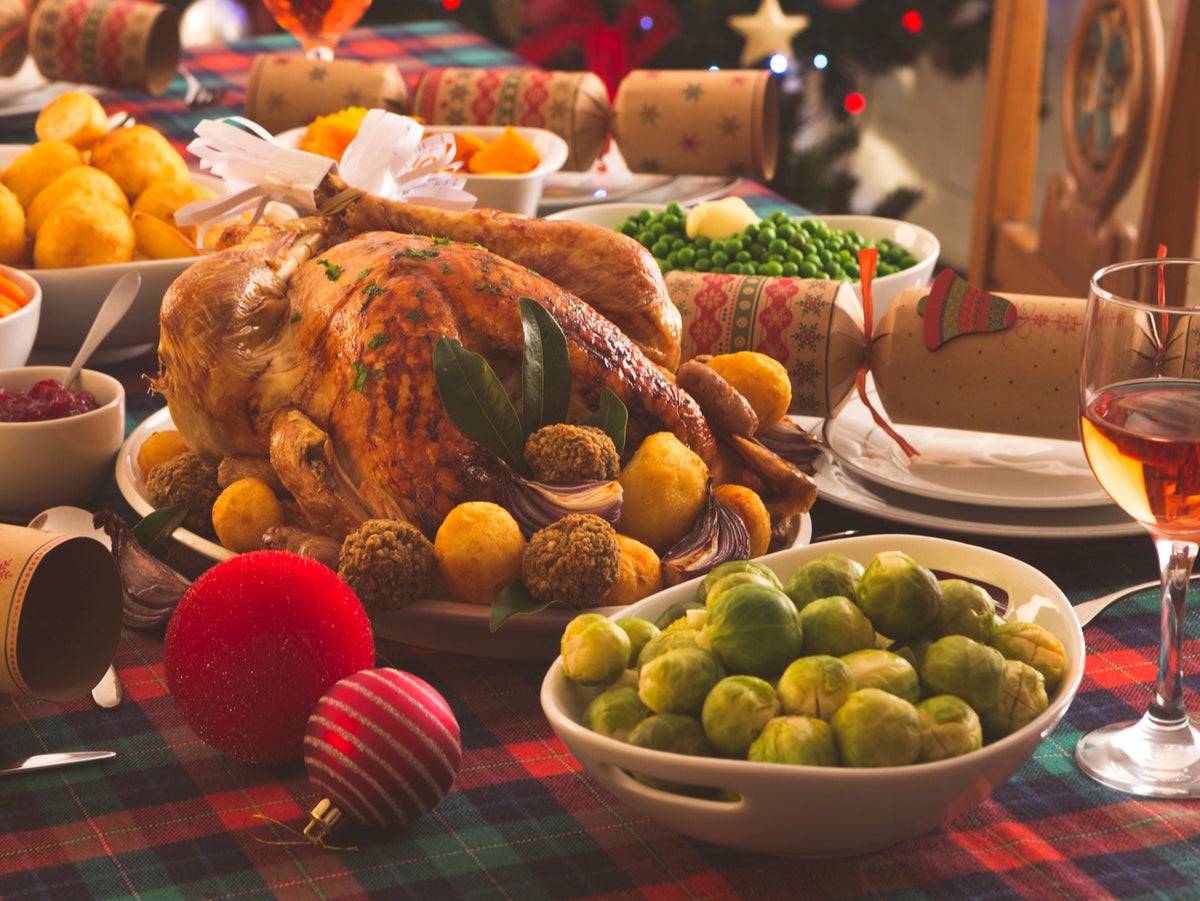
Families around the country will be digging deep into their pockets this week to pay for their Christmas dinners as the cost of living crisis continues.
On Wednesday, it was announced that inflation had dropped to its lowest rate in two years due to falling fuel costs and a slowdown in food price rises. But falling inflation does not mean prices are falling, just that the rise in prices has slowed down.
So what does this mean for the cost of food shopping for everyday people?
The Independent looked at the cost of key Christmas dinner ingredients in shops today compared to this time last year and found the results are a mixed bag.
Some staples of the festive dinner table have soared by more than 25 per cent while others have seen little change.
Frozen turkeys have gone up by 1.2 per cent in the last 12 months but carrots are 26 per cent more expensive.
Mince pies have also seen a large rise, now costing 25 per cent more, with gravy up by 17 per cent. Frozen brussell sprouts are 10 per cent higher and Maris Piper potatoes are up 8 per cent. But not everything costs more in 2023, with the price of stuffing down by 2.8 per cent.
As ever, where you shop also plays a big part in what you’re likely to pay out.
Figures by Statista reveal the overall cost of Christmas dinners by supermarket retailers and the difference can be big. Savvy shoppers will be happy to see Aldi and Lidl labelled cheapest at £33.80 and £33.84 respectively.
The price of food has gone up again while inflation has gone down— (PA)
Chains such as Asda and Tesco cost £39.49 and £37.01 on average while the most premium shoppers will fork out almost £20 more than the cheapest option with a Waitrose Christmas dinner costing £52.68.
The Food Growth company, a charity that monitors the changing costs of food, said: “While the festive season is a happy time of celebration for many, for others it is a time of increased financial strain and worry.
“High heating bills through the winter, on top of added costs of Christmas presents and treats, all put increased pressure on those already struggling with tight budgets.
“While inflation is decreasing after unprecedented highs through the cost of living crisis, the reality is that food prices remain elevated leaving many unable to cover the cost of their basic food needs.
“Government must commit to sustained support for families all year round to put food on the table so that nobody is left to struggle with food insecurity.”







